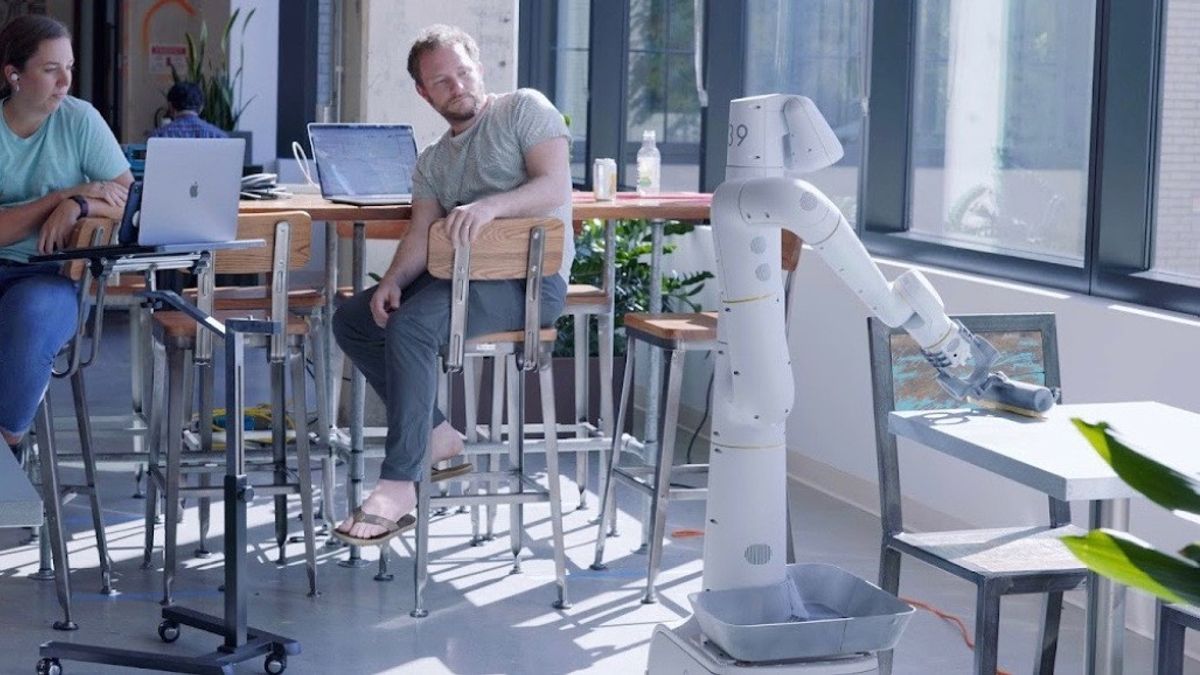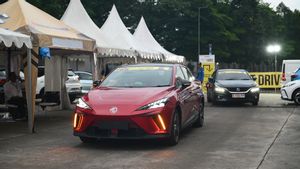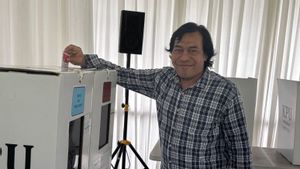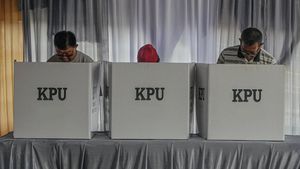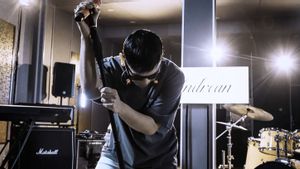JAKARTA - Google's parent company, Alphabet is trying to bring robots to perform daily tasks in its office. This robot was built by X-Alphabet's Moonshot Factory team.
Team X is specifically focused on solutions to next-generation problems. Since its founding in 2010, some of the notable projects that have come out of Moonshot Factory are Google Glass, a giant balloon that delivers the internet to remote corners of the world, sustainable wind energy using kites, and Waymo for autonomous transportation.
Now, Team X is building robots to learn office tasks from wiping desks, sorting trash, opening doors, and arranging chairs in meeting rooms using the technology of Everyday Robots, a subsidiary under Alphabet.
This ability paved the way for robots moving in an office environment, to perform simple human tasks but also coexist with humans.
“The same robot that sorts out trash can now be equipped with a glass cleaner to clean tables and using the same handle that holds cups can learn to open doors,” said Chief Robot Officer, Hans Peter Brøndmo.
As the X team envisions with this approach, it will bring robots into real environments and learn how robots deal with change.
“Imagine (if a robot could) try to script all possible ways to grab a cup of coffee, anticipate lighting, or open a door. It won't scale," said Brøndmo.
To do this, the team has relied on machine learning algorithms, which can involve training a robot to achieve a desired goal by going through trial-and-error simulations.
The machines from Everyday Robots will actually practice wiping the table in 3D simulation before practicing in the real world. According to Brøndmo, this approach could drastically reduce the time it takes to train a robot.
“In 2016, when we dispensed with simulations and used a small laboratory configuration of industrial robots to learn how to hold small objects such as toys, keys and everyday household items, it took the equivalent of four months for one robot to learn how to do a simple grip with a 75 percent success rate," says Brøndmo.
Over time, the X team made improvements to reduce this to just one day with 90 percent accuracy. The robot's success in a wide variety of activities is due to a common algorithm applied across activities, which ensures no re-coding is required.
The robots will initially come to Alphabet's headquarters in Mountain View. Then, to better train the robot, the team now plans to expand its use across Google offices in the San Francisco Bay area.
The English, Chinese, Japanese, Arabic, and French versions are automatically generated by the AI. So there may still be inaccuracies in translating, please always see Indonesian as our main language. (system supported by DigitalSiber.id)
